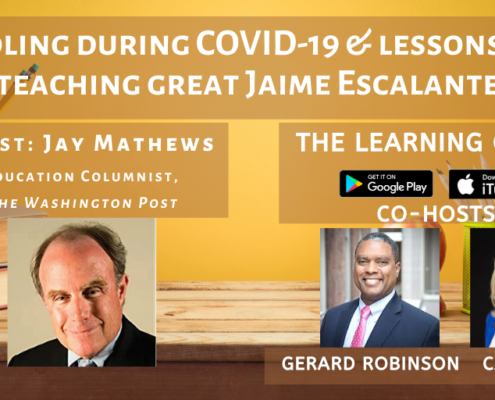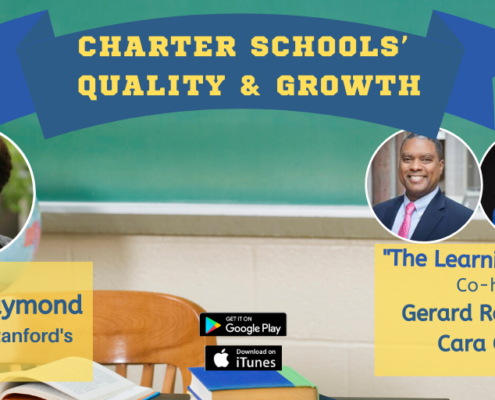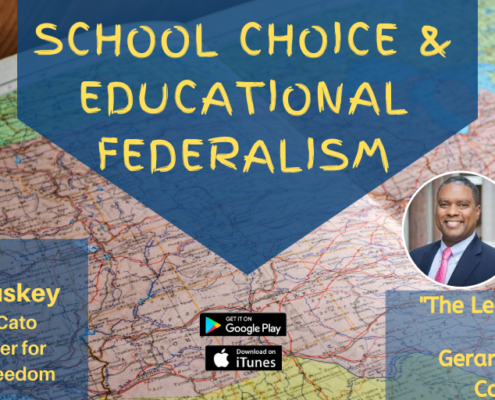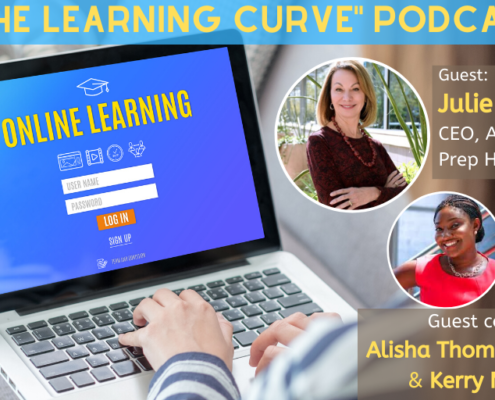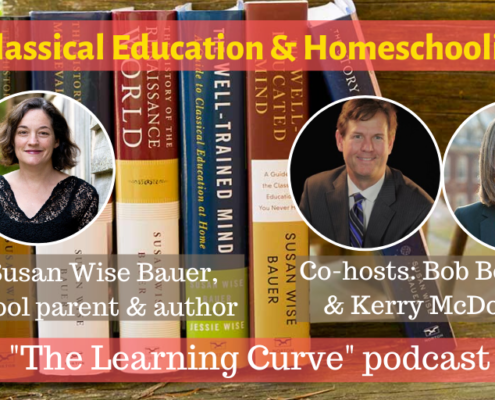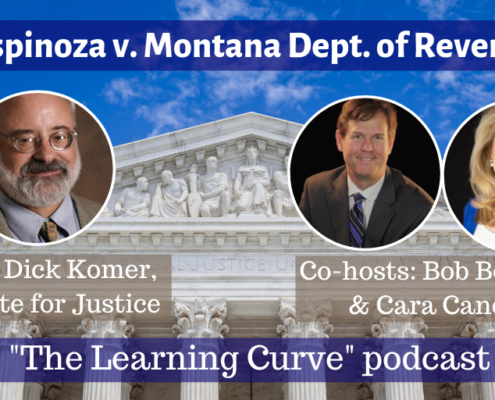NCTQ’s Kate Walsh on the Crisis in K-12 Teacher Prep, Quality, & Evaluation
This week on “The Learning Curve,” Cara and Gerard are joined by Kate Walsh, president of the National Council on Teacher Quality. They discuss the factors contributing to the decline in qualifications of those who enter the teaching profession, including a general lowering of academic expectations within graduate schools of education and across higher education. They explore the importance of liberal arts content knowledge and subject-area expertise in teacher preparation, and what research shows about the impact of teachers obtaining advanced degrees on student outcomes. Kate describes some of the key differences between teacher preparation, accreditation, and job prospects in the U.S. and other countries, including Canada. They speculate about what a Biden presidency might mean for K-12 education policymaking, delving into the politics of education reform, and the role of trade associations and special interest groups, such as teachers’ unions, the Council of Chief State School Officers, and the National Governors Association, in impeding necessary changes. Lastly, Kate shares insights on how to diversify the teaching pipeline, at a time when people of color make up half of public school students, but only 20 percent of their teachers.
Stories of the Week: The governing board of NAEP, or the Nation’s Report Card, is considering changing the framework of the reading section to account for differences in students’ sociocultural backgrounds – will such a shift undermine the reliability of this important barometer of school district performance? An analysis from EducationNext shows that the number of K-12 administrative staff employed in U.S. public school districts has increased by 75 percent over the last two decades, but only 7 percent for teachers. Is this trend sustainable as resources become scarcer?
The next episode will air on Wednesday, October 28th, 2020 at 12 pm ET with Andrew Burstein, the Charles P. Manship Professor of History at Louisiana State University and the author of The Original Knickerbocker: The Life of Washington Irving, and with Nancy Isenberg, The Problem of Democracy: The Presidents Adams Confront the Cult of Personality.
Tweet of the Week:
COVID-19 pandemic gives us opportunity to refocus education in America https://t.co/d0l2bWn0Df
— USA TODAY Opinion (@usatodayopinion) October 16, 2020
Interview Guest
 Kate Walsh has served as the president of the National Council on Teacher Quality since 2003, leading work to ensure that every child has equal access to effective teachers. At NCTQ, Walsh has spearheaded efforts to instill greater transparency and higher standards among those institutions that exert influence and authority over teachers. Notably, she launched the first-ever review and rankings of the nation’s teacher preparation programs. Previously, Walsh worked at The Abell Foundation in Baltimore, the Baltimore City Public Schools, and the Core Knowledge Foundation. Among her accomplishments, she: started and ran a boarding school located in Kenya, East Africa, in order to educate at-risk boys from Baltimore; founded one of the nation’s premier STEM programs, yielding numerous Intel Talent Search winners for Baltimore City; and, started the first alternative certification program for teachers in Maryland. A long-time resident of Baltimore, Walsh has also served on the Maryland State School Board.
Kate Walsh has served as the president of the National Council on Teacher Quality since 2003, leading work to ensure that every child has equal access to effective teachers. At NCTQ, Walsh has spearheaded efforts to instill greater transparency and higher standards among those institutions that exert influence and authority over teachers. Notably, she launched the first-ever review and rankings of the nation’s teacher preparation programs. Previously, Walsh worked at The Abell Foundation in Baltimore, the Baltimore City Public Schools, and the Core Knowledge Foundation. Among her accomplishments, she: started and ran a boarding school located in Kenya, East Africa, in order to educate at-risk boys from Baltimore; founded one of the nation’s premier STEM programs, yielding numerous Intel Talent Search winners for Baltimore City; and, started the first alternative certification program for teachers in Maryland. A long-time resident of Baltimore, Walsh has also served on the Maryland State School Board.
News Links
Growth in Administrative Staff, Assistant Principals Far Outpaces Teacher Hiring
City Journal: A Feel-Good Report Card Won’t Help Children
https://www.city-journal.org/naep-proposes-changes-to-reading-tests
Get Updates on Our Education Research
Recent Episodes









